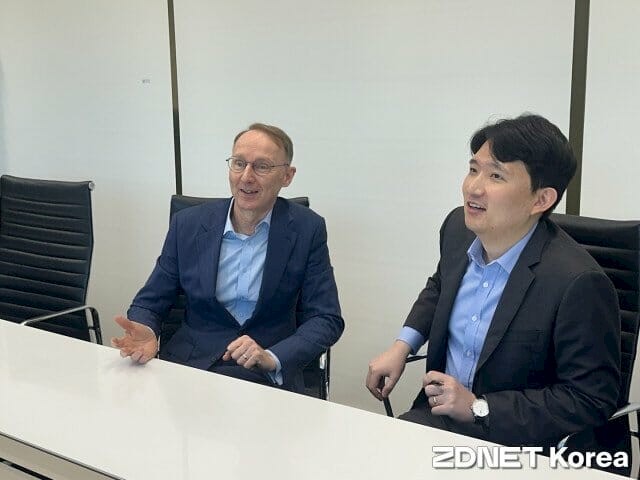Korean Deep Tech Study: Deep tech ecosystem growth for building an innovation-driven, resilient economy in a new global era
16 December 2025 — As global innovation continues to accelerate, Korea risks falling behind. To stay competitive, it must foster a more decentralized and inclusive technology ecosystem.

Download this post (PDF)
Updates: The original Korea Deep Tech Study in English was originally published on June 9, 2025. In December 2025, the research team at Reddal released an updated version of the report with insights from H2/2025 and an forward-looking view to 2026, available in Korean. Both versions are accessible for views and downloads below.
***
Updated report with insights from H2/2025, released on December 16, 2025
Building on the original report published in June, this update focuses on how recent changes in policy, investment, and the technological landscape are shaping the medium- to long-term competitiveness of Korea’s deep tech sector. Reddal identifies 2026 as a critical inflection point for the ecosystem and highlights three must-clear gateways for sustainable growth: securing top talent, shifting toward long-term innovation-driven technology policies, and building an ecosystem in which emerging global deep tech companies can originate and scale from Korea.
Limits of AI- and system-semiconductor-led growth and structural imbalance across deep tech
According to the report, as of the second half of 2025, Korea’s deep tech industry and investment flows remain overly concentrated in AI and system semiconductors, constraining balanced growth across the broader ecosystem. As government policies and capital continue to gravitate toward proven themes, long-cycle global deep tech domains such as nuclear energy and quantum technologies are experiencing weakened R&D continuity and investment stability. Illustratively, in Reddal’s June deep tech company list, 78 firms were in AI and big data and 14 in system semiconductors, while only four were in quantum technologies and none in nuclear energy.
While AI and system semiconductors currently show the strongest momentum driven by rising global demand, the report cautions that this momentum does not automatically translate into sustainable competitive advantage. Despite continued private-sector R&D supported by government initiatives such as national AI programs and GPU supply-chain alliances, Korea faces a fundamentally different competitive landscape from the United States and China, whose AI industries have spent years building data-intensive capabilities, iterating across technology generations, and establishing market dominance with global users and customers. As a result, Reddal argues that Korea must pursue a differentiated path rather than attempting to replicate these trajectories. To convert current momentum into real industrial competitiveness, the report emphasizes the need to move beyond short-term infrastructure build-outs and pilot projects and instead develop a vertically integrated value stack spanning manufacturing, devices, and digital services.
Strategic long-term opportunities in aerospace, quantum, and next-generation nuclear
The report also identifies aerospace, quantum technologies, and next-generation nuclear as strategic sectors with significant medium- to long-term growth potential, despite receiving relatively limited attention today. These areas build on Korea’s accumulated strengths in basic science and public research. In aerospace, the analysis highlights the importance of progressing beyond early commercialization of launch vehicles and satellites toward a more mature stage in which private companies anchor value chains end to end. For quantum and nuclear technologies, the report stresses the need for conditions that enable faster formation of private startups and attract both domestic and international talent and capital.
Although Korea ranks among global leaders in public basic science research across all three areas, translating these strengths into market-ready solutions requires rapid and sustained talent acquisition—including foreign talent—and effective transfer of intellectual property from public research to private-sector commercialization. The report concludes that with long-term capital structures and clear commercialization pathways that convert research outcomes into revenue, these sectors could emerge as tangible growth engines for the Korean economy over the coming decades.
Three critical gateways to sustainable growth
Reddal emphasizes that for Korea’s deep tech ecosystem to move onto a sustainable growth trajectory, it must go beyond isolated policies or short-term achievements and simultaneously address three interconnected priorities: talent, long-term policy transformation, and a startup-centric ecosystem. These gateways are not sequential choices but essential conditions; failure in any one risks undermining the competitiveness of the entire system.
First, the report calls for an environment that minimizes domestic STEM talent outflows while attracting global talent. Retaining domestic talent requires improving the financial performance and global competitiveness of technology companies so they can offer compelling compensation and career paths. To attract foreign STEM talent, the report recommends strengthening education-to-employment pathways and enhancing the effectiveness of policies such as the “top-tier F-2 visa.” Beyond technical talent, experienced foreign deep tech founders and executives are also identified as critical assets that Korea’s ecosystem must actively attract, from both policy and investment perspectives.
Second, the report urges a shift away from short-term, agenda-driven policies toward a more consistent, long-term technology policy framework that supports sustained innovation and commercialization. This includes expanding policy focus beyond AI and system semiconductors to areas such as nuclear energy, quantum technologies, and aerospace, and redesigning policy tools to provide longer-term funding and programs for deep tech teams that require five to ten years of stable R&D runway. According to the June report, 87.8 percent of deep tech exits between 2020 and Q1 2025 occurred via technology-special listing routes backed by government support. The analysis finds that overreliance on IPOs, coupled with premature exits and historically weak post-listing performance, has dampened incentives for deep tech investment and entrepreneurship. To address this, the report advocates expanding negative-list regulation to remove barriers to technology testing and early commercialization, enabling companies to experiment with diverse industrial applications and revenue models before going public. This approach would allow deep tech firms to pursue more natural growth paths based on technological maturity and market validation, easing pressure toward premature exits. In parallel, the report highlights the importance of fostering long-horizon, patient capital by enabling fund managers backed by government fund-of-funds to invest flexibly without being driven by short-term themes.
Finally, the report underscores the need to complement Korea’s traditionally government- and conglomerate-led innovation model with an ecosystem in which emerging deep tech companies can independently experiment with and scale next-generation technologies and business models. While partnerships with large domestic corporations in early stages can help refine and mature technologies, the report stresses that from the outset, companies should pursue technology development and early globalization with international markets in mind to shape ecosystem-wide culture. Predictable capital-raising mechanisms, access to testbeds, and clear commercialization pathways, from early stages through scale-up, are identified as prerequisites for achieving global competitiveness beyond the domestic market.
2026 as a decisive turning point
Hankyeol Lee, Reddal Venture Capital and Private Equity Practice Lead, commented:
“Looking toward 2026, Korea’s deep tech industry stands at a decisive turning point – one that will determine whether it can move beyond technological catch-up toward a sustainable, competitive ecosystem. Success will not come from following others faster, but from creating an environment that attracts and retains top talent, shifting to long-term innovation-driven technology policies, and building an ecosystem in which emerging deep tech companies can scale globally. Only then can Korea position itself as a leader rather than a follower.”
The original Deep Tech Study Korea, first published in June, concluded that despite Korea’s world-class basic science capabilities and strong technical talent, the sector faces structural growth constraints driven by a domestically focused startup culture, limited exit options, low commercialization rates of basic research, and insufficient inflows of foreign capital. It identified key priorities including open policy shifts to attract global capital and talent, private-sector-led commercialization frameworks and regulatory reform, and diversification of exit strategies through overseas M&A and global IPOs.
The H2 update builds on these findings by reviewing subsequent policy and investment developments and providing clearer benchmarks for future decision-making. Through this report, Reddal emphasizes that now is the time for Korea’s deep tech sector to move beyond short-term trends and technology-specific growth, and to begin a broader transition toward a resilient, innovation-driven economy over the long term.
The full Korean version of the H2 update is available at Innovative Korea: Building a Sustainable Deep Tech Ecosystem to Power the Next-Generation Technology-Driven Economy.
***
Announcement of the updated report in Korean
대한민국 딥테크 리포트: 새로운 글로벌 질서 속 혁신 주도형·회복탄력적 경제를 향한 선택
글로벌 기술 혁신이 가속화되는 가운데, 한국은 다시 한 번 중요한 기로에 서 있다. 경쟁력을 유지하기 위해서는 보다 분산적이고 포용적인 기술 생태계로의 전환이 필요하다.
본 글은 2025년 6월에 발간된 Reddal의 Korea Deep Tech Report를 한글로 옮기고, 여기에 2025년 하반기 기준의 최신 산업·투자 동향을 반영해 핵심 메시지를 재정리한 것이다. 원 보고서가 한국 딥테크 생태계의 구조적 강점과 한계를 진단했다면, 이번 업데이트는 그 이후 실제 정책, 투자, 기술 흐름이 어떤 방향으로 전개되고 있는지를 점검하는 데 목적이 있다.
2025년 하반기 기준 한국의 산업·투자 흐름은 AI와 시스템 반도체에 과도하게 집중되어 있다. 두 영역은 분명 글로벌 수요와 기술 경쟁력이 확인된 분야이지만, 정책과 자본이 반복적으로 ‘검증된 테마’에만 몰리면서 장기적 혁신을 떠받칠 보다 넓은 딥테크 포트폴리오는 상대적으로 위축되고 있다. 특히 단기 성과 중심의 정책 설계와 보수적인 투자 심리는 초기 연구 기반 딥테크 기업과 비주류 기술 영역의 성장을 제약하는 요인으로 작용하고 있다.
한편 우주항공, 양자기술, 차세대 원자력과 같은 분야는 한국이 오랜 기간 축적해 온 기초과학과 공공 연구 역량을 바탕으로 중장기 성장 잠재력을 보유한 영역이다. 다만 이들 기술은 개발 주기가 길고 상용화 불확실성이 높아, 단편적인 지원으로는 성과를 내기 어렵다. 장기 자본 조달 구조, 일관된 기술 정책, 연구 성과가 자연스럽게 시장으로 이전되는 상용화 경로를 함께 구축하는 것이 핵심 과제로 떠오르고 있다.
결국 한국 딥테크의 지속 가능한 성장은 특정 기술을 더 빠르게 따라가는 데 있지 않다. 우수 인재를 끌어들이고 붙잡을 수 있는 환경, 장기 혁신 중심으로의 정책 전환, 그리고 신생 딥테크 기업이 자연스럽게 등장해 글로벌 시장으로 확장할 수 있는 생태계가 함께 구축될 때, 한국은 다음 글로벌 기술 사이클에서 추격자가 아닌 선도자로 자리 잡을 수 있을 것이다.
***
Original report published on June 9, 2025
Deep tech – emerging from university labs, SMEs, and public-private research collaborations – will be a driving force behind the next wave of global economic growth. For Korea to lead in this space, both technical and commercial ambitions must be high from the start. Korean deep tech ventures should strive to set global standards rather than follow them. This is key to creating a dynamic hub that draws top talent, visionary customers, and long-term investors from around the world.
A research team at Reddal, led by Hankyeol Lee and Per Stenius, examined Korea's deep tech ecosystem under the theme Innovative Korea: Deep tech ecosystem growth for building an innovation-driven, resilient economy in a new global era. This report presents a comprehensive analysis of Korea’s deep tech ecosystem, built on a proprietary database of 432 startups and enriched by interviews with local and international stakeholders – including 9 investors, 8 startup founders, and 1 foreign deep tech expert.
View and download the report here
Korea shows strong foundations in basic science and talent. However, the report highlights several structural barriers: an insular, domestically focused startup culture; limited exit opportunities; weak commercialization of scientific research; and poor integration with global capital and markets.
A key finding is the critical need to lead in bleeding-edge technologies like quantum and nuclear – areas deeply rooted in basic science. Yet, the ecosystem lacks traction here, with only 4 quantum startups and no nuclear startups identified in Reddal’s database.
A research team at Reddal, led by Hankyeol Lee and Per Stenius, examined Korea's deep tech ecosystem under the theme Innovative Korea: Deep tech ecosystem growth for building an innovation-driven, resilient economy in a new global era. This report presents a comprehensive analysis of Korea’s deep tech ecosystem, built on a proprietary database of 432 startups and enriched by interviews with local and international stakeholders – including 9 investors, 8 startup founders, and 1 foreign deep tech expert. This signals systemic issues in Korea’s research-commercialization pipeline, where public R&D remains disconnected from private sector innovation. The report stresses the need to build stronger bridges between research institutions and the market to spur business formation.
To evolve into a global deep tech hub, Korea must shed protectionist tendencies and foster an open, collaborative environment where foreign investors, international customers, and global talent can thrive. Rather than serving only domestic conglomerates, Korean startups should co-develop solutions for global markets. With world-class infrastructure and talent, Korea is well-positioned to act as a testbed and value creation platform for global deep tech ventures.
Key recommendations include:
- Startups: Target global problems and markets, particularly in AI, quantum, next-generation nuclear, and system semiconductors.
- Investors: Strengthen technical validation capabilities and portfolio diversity among local investors, while expanding collaboration with global investors and LPs.
- Government: Relax regulatory constraints and build testbed infrastructure, while adopting long-term policy support. In particular, the government should introduce a negative listing regulatory framework, where all activities are allowed unless explicitly prohibited. This would strengthen data collection and global competitiveness in emerging fields such as blockchain and autonomous mobility.
International comparisons – such as Finland’s deep tech approach via Tesi – offer valuable lessons. Finland’s university spin-off systems, public-private investment structures, and openness to foreign capital provide benchmarks for Korea.
The report concludes with a forward-looking roadmap for sustainable ecosystem growth, calling for coordinated action among startups, investors, and the government. It also includes deep dives into sectoral investment trends, IPO trajectories, and behavioral patterns of founders and investors – offering a holistic view of Korea’s current position and future potential in deep tech.
***
Interview with ZDNet Korea on June 12, 2025
On June 12, 2025, ZDNet Korea, a leading outlet for global technology news and analysis, interviewed Per Stenius, Client Director at Reddal, and Hankyeol Lee, Business Developer at Reddal. The discussion was based on insights from Reddal’s Korea Deep-Tech Study.

The interview highlighted several key challenges that continue to hinder Korea’s deep-tech ecosystem:
-
Domestic focus limits growth: Overreliance on local development and protectionist policies weaken competitiveness
-
Application over core tech: Korean startups often build applications, not foundational technologies, due to high R&D barriers
-
Investment imbalance: Funding clusters in trendy areas, neglecting deep-tech fields like quantum or nuclear
-
Regulatory isolation: Data-localization and cloud restrictions raise costs and block global cooperation
-
Need for global mindset: Korea should welcome foreign capital, talent, and partnerships instead of prioritizing national ownership
To drive growth in deep-tech, Korea needs to shift from protectionist policies toward greater global integration. Startups should move beyond “Korea-only” solutions and build globally scalable technologies in collaboration with international capital, talent, and infrastructure. Regulators must revisit restrictive data and cloud policies that hinder cross-border connectivity and increase operational costs. At the same time, the broader ecosystem should diversify investments into high-potential fields such as quantum, nuclear, and foundational deep-tech, rather than concentrating on short-term, trend-driven sectors.
The full interview is available in Korean and is accessible via ZDNet Korea at [인터뷰] "한국 IT 생태계, 국산화 집착 벗어나야…글로벌 연결이 필수" - ZDNet Korea
Tags
Deep tech, Korean economy, Venture capital, Private equity, Ecosystem development, Start-up ecosystem, Technology development, Technology SMEs, Technology startups












